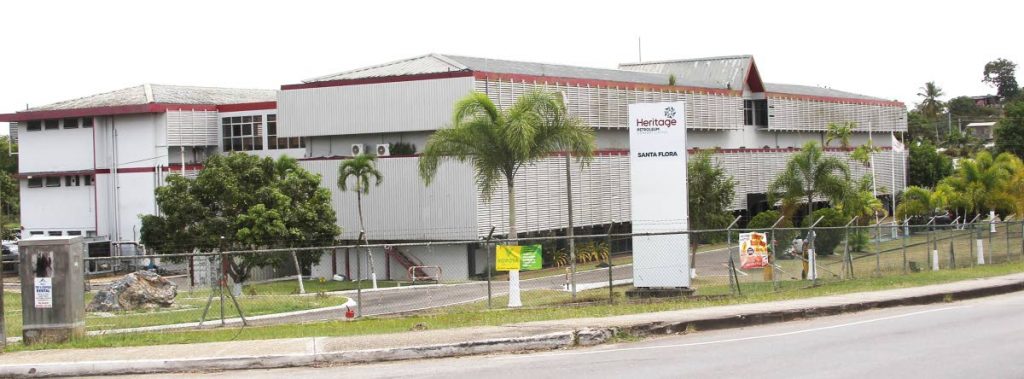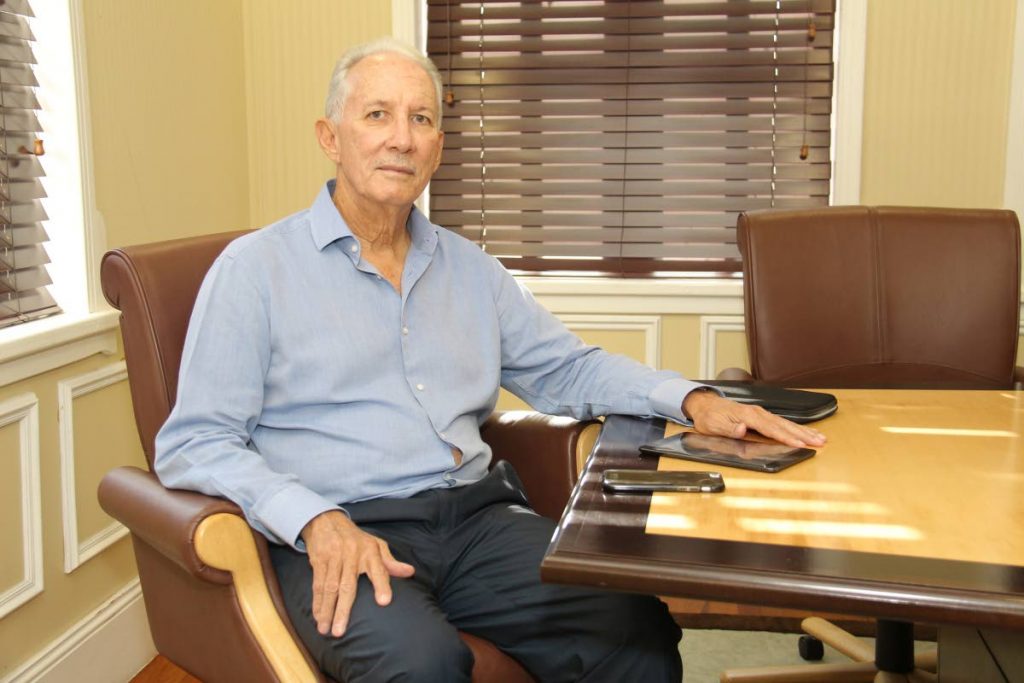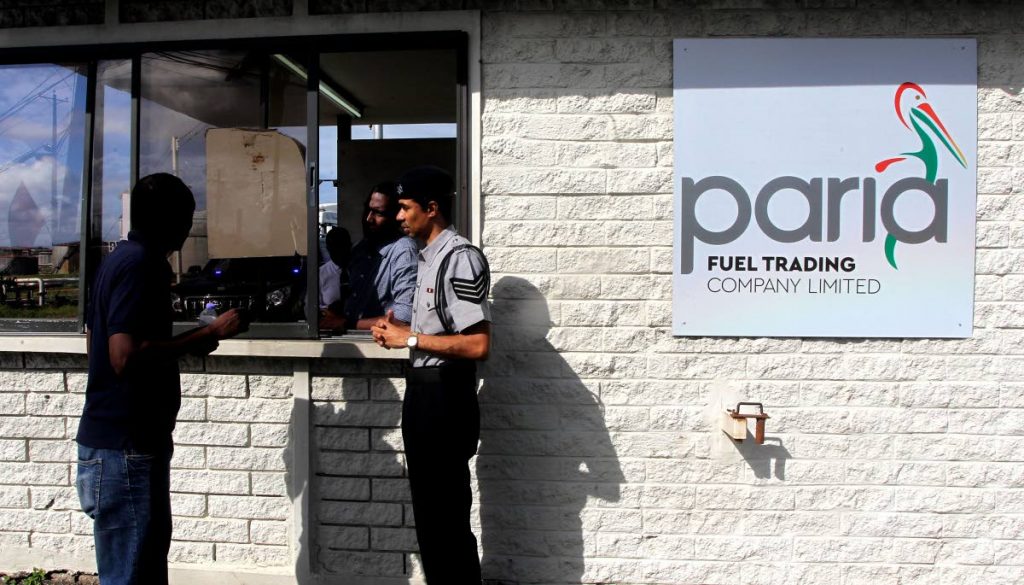Building Heritage value

It's been just about six months since the transition from Petrotrin to Trinidad Petroleum Holdings Ltd (TPHL), including the creation of Heritage Petroleum Ltd and Paria Fuel Trading Co Ltd. Business Day spoke via e-mail to TPHL's chairman, Wilfred Espinet on the progress of the companies and their viability and long term sustainability.

What was the transition from Petrotrin to Heritage/Trinidad Petroleum like?
Shutting down Petrotrin was an extremely difficult decision. The board explored all options before it was determined that this was the only one that allowed for the creation of a viable enterprise. Change as radical as we propose is unsettling and challenges the status quo. As one would expect there are elements with vested interests, some of whom are still seeking to take advantage of the situation to their own benefit. The transition has progressed at an exceptional pace and the teams that have participated at all levels have demonstrated world-class capabilities.
What was the breakdown in cost for starting over, for example, rebranding and refurbishing? In the context of Petrotrin, how cost effective was all of this? Especially since saving money was the reason for the whole restructure.
One has to understand that the cost of restructuring is an extraordinary and non-recurring expense. The decision to redesign the state petroleum sector was an imperative. Petrotrin had accumulated substantial losses for several years that was funded by increasing debt. The company was on the brink of insolvency – the company was losing almost $2 billion before tax in each of the preceding three years. It was evident that given the historical pattern of increasing cost, it would not survive beyond 2019. The major cost was the $1.7 billion spent on termination payments. While it may seem substantial, it is done as a corrective measure and allowed us to create a company that is purpose built; is operating according to international benchmarks; profitable and can be sustained.
What is the current financial status of Heritage? It has been operational now for about six months, so I assume you have a fair assessment of its viability. What was the reason for the US$2.8 million (TT$18.9 million) loss up to January and how was the company able to rebound so quickly to be able to pay TT$131 million in royalties by March?
Heritage Petroleum recorded a loss in the first month of operation, and this was largely driven by one-off start up costs. The company has managed to achieve all its monthly financial targets since.
Tell me about competitiveness. Can Heritage hold its own on the world stage?
Heritage was purpose-designed to operate the exploration and production assets that were operated by Petrotrin. The company operates in a global market and the model we developed was geared to compete in that environment – this includes covering the debt payments that were owed by Petrotrin and based on Heritage maintaining production levels consistent with the past five years. The model purposely resisted the temptation to include aspirational production figures since it had to be achievable to convince our financiers to support it.
What about incentives and the overall business climate? What does Heritage need to be viable? I ask that in the context of the supplemental petroleum tax, which the Government has said it will not modify, whereas small operators — many of who partner and sell products to Heritage — have found it to be punitive. What’s been Heritage’s experience?
Heritage pays royalty and other taxes on production. The Government collects approximately 54 per cent of every dollar of revenue. That is before or regardless of if the company makes a profit. This is the environment in which we operate and the model that was developed envisaged that the taxes are met.
In the six months or so since the company has been operating, do you think its performance now justifies the decision to restructure? I mean, you were pretty much vilified for spearheading this decision to restructure, so has it been worth it?
Six months in the life of a company can be compared to six months in the life of a person – it is in its infancy. We have daily progress reports on the operation but it is premature to make predictions. The performance of both Heritage and Paria has been better than anticipated. I want to caution against a simplistic assumption that the good fortune that we have enjoyed so far is a given. Both of the companies operate on internationally benchmarked standards and are producing positive results and meeting all of their commitments. This clearly justifies the decisions made so far.
The challenges continue to be the management of the non-operational companies within the TPHL Group. Both Guaracara and Petrotrin demand resources that are required by the operating entities to ensure they develop and grow so that the accumulated debt will not continue to be a liability that could burden the finances of the State.
Are you happy with the current business model of Paria? Is it sustainable over the long term, especially given its role in energy security?
Paria was created to ensure the uninterrupted supply of fuel to the local market. This was not a strategic business decision – it was consequential. We determined that the free cash flows generated from the exploration and production business were insufficient to fund the losses and capital expenditure needed to keep the refinery in operation. When we determined that refining had to be discontinued we needed to ensure we were able to provide a secure supply of fuel to the country, hence the need for Paria.

If the refinery is sold or leased or otherwise transferred to another entity, what would happen to Paria, since it’s on the refinery property?
Despite challenges to its operations inflicted by regulatory and procedural hurdles, the company has produced positive operational results that surpass the budgets. The company acquired various assets that were part of the refining operations of Petrotrin specifically the port, storage tanks and product transport systems. We expect that if the attempt to get the refinery restarted is successful, the operators will need the assets to operate. The likely outcome is that the refinery will supply Trinidad and Paria will not need to continue to import fuels.
What’s the latest with the bond renegotiations? There have been reports that investors are not pleased with the new terms. Can you say if it’s been settled? Do you believe that the company, now that it’s been restructured, can honour its refinanced debt commitments?
The refinancing of the debt is a work in progress. TPHL did not exist eight months ago and is seeking to get some of the most sophisticated bankers in the world to lend us US$1.2 billion. That is more than TT$8 billion or 15 per cent of the country’s annual budget. Given the recent startup of Heritage we have no historical performance data that would normally form part of the documentation that supports such loan applications.
TPHL chose to approach existing bondholders to participate in the settlement of existing bonds. The proposal is to exchange a portion of the existing bonds for new ones. In spite of all the challenges, our assessment continues to be that we will succeed in raising the finance and the payment of the bonds due in August will be made.


Comments
"Building Heritage value"